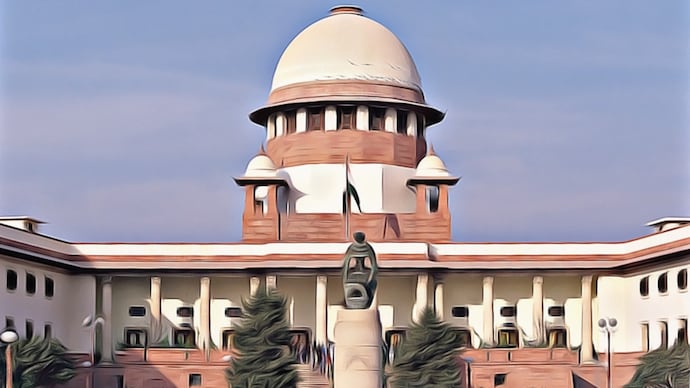


The Supreme Court recently stayed the operation of two Union Environment Ministry office memos that allowed ex post facto environmental clearances for mining operations in the country [Vanashakti vs Union of India].A bench of Justices BR Gavai and Sandeep Mehta on January 2 issued an interim stay on the memoranda, and sought the response of the Union government in the matter within four weeks.Until further orders, there shall be stay of operation of the Office Memoranda dated 7th July, 2021 and 28th January, 2022 issued by the Ministry of Environment, Forest and Climate Change," the Court's January 2 order stated.The order was passed on a public interest litigation (PIL) petition by NGO Vanashakti which raised a grievance against the grant of approval for mining projects without first obtaining environmental clearances under the 2006 Environment Impact Assessment (EIA) notification.Vanashakti stressed that the EIA notification strictly does not allow for exceptions. Therefore, the two office memos (of July 2021 and January 2022) were without jurisdiction and ultra vires the provisions of Section 3 of the 1986 Environment (Protection Act), and in violation of precedents, the NGO contended.The July 2021 memo prescribes a Standard Operating Procedure (SOP) towards the identification and handling of 'violation cases' that can be granted ex post facto clearances within six months.The Madras High Court stayed this SOP in 2021, leading to the issue of the January 2022 memo.The January 2022 memo, in effect, limited the scope of the Madras High Court's order of stay on the memo to just Tamil Nadu, the Supreme Court was told.
Vanashakti has now urged the top court to quash both memos and the SOP. Directions were also prayed for so that no applications for ex-post facto environmental clearances filed after April 13, 2018 are processed in the meanwhile.The NGO has argued that the memoranda dilute the mandate of prior environmental clearances and will have a detrimental impact on ecologically sensitive areas."A provision of 'prior EC' and 'ex post facto EC' cannot co-exist being mutually destructive and an oxymoron, for the simple reason that an impact assessment can only take place before commencement of activity and not after, and that an EC is an approval which is taken prior to the commencement of activity and emanates from the 'precautionary principle' which is one of the cornerstones of environmental jurisprudence", Vanashakti contended.Senior Advocate Gopal Sankaranarayanan with advocates Vanshdeep Dalmia, Anisha Jian, and Tanya Shrivastava appeared for petitioner, NGO Vanashakti.On a related note, the Supreme Court had in May 2022 held that the Environment (Protection) Act of 1986 does not prohibit the grant of ex post facto environmental clearances.
TAGS: Supreme Court Ex Post Facto Environmental Clearances Mining